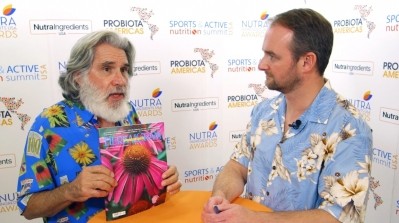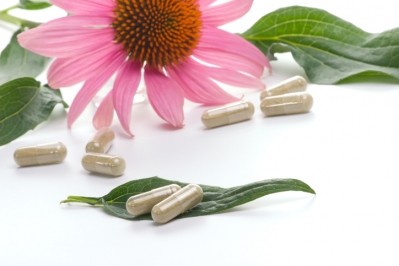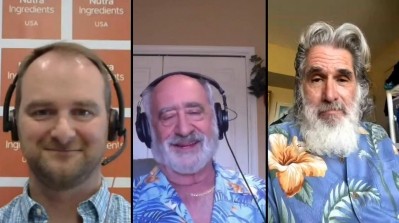BAPP SOP update: Adopters say guidance is moving commerce needle

The BAPP SOP, nicknamed “Burn it, don’t return it,” provides businesses with a framework to remove IDAs from the supply chain. David Trosin, managing director of NSF International's health sciences certification program, is among the leaders who are working to educate the industry on the voluntary standard.
The SOP applies to botanical and herbal ingredients and non botanical ingredients — any ingredient that might be subject to accidental or intentional adulteration or accidental contamination. In some cases of adulteration or contamination, the ingredient can be lawfully remediated or reconditioned to a level of quality that is deemed acceptable by relevant federal regulations. However, in other cases, due to the type of adulteration and/or the extent of contamination, some materials cannot be adequately reconditioned, thus requiring its being considered irreparable.
According to the SOP, when lab testing approved by both the buyer and seller conclude an ingredient is irreparably defective, the buyer should not return it to the seller. Instead, it must be destroyed to prevent its resale into commerce. Notification of certified, lawful destruction among all parties is an essential key step in this consumer protection initiative. While the United States and many other countries mandate ingredients that do not meet appropriate specifications cannot be released into manufacturing, there is no guidance regarding what the buyer should do with rejected material. The SOP aims to remedy this quandary, providing guidance, contract language and critical framework.
Trosin said it’s not enough to stop these adulterated and sometimes even dangerous ingredients from entering the supply chain.
“We need to stop the reentry of IDAs to the global commerce ecosystem. As the leader in protecting human health, NSF is proud to lend our expertise to this historic effort.”
In the past 12+ years, BAPP has published 80 extensively peer-reviewed documents that confirm the presence of adulterated, fraudulent ingredients mislabeled as herbal raw materials, extracts, and essential oils. Mark Blumenthal, founder and executive director of the American Botanical Council and founder and director of BAPP, said these BAPP publications are used by many responsible members of the herb industry across the globe to set appropriate quality specifications for their botanical ingredients.
Positive reaction
Trosin said the SOP has already garnered a lot of gratitude from early adopters who are relieved to finally have a framework for managing IDAs. And at last count, the SOP was downloaded 500 times, averaging about two downloads per day the past 6 months, according to ABC.
“We’ve been thrilled with the reaction. Since this is a voluntary SOP, we had a range of expectations. The actual results exceed those expectations. We hope growth and downloads continue as the news of the SOP reaches new audiences in the industry,” said Trosin.
While there isn’t any formal data about the amount of IDAs that have been destroyed/disposed of using the SOP, Trosun said that is a data point he hopes to be able to track as the industry continues to adopt.
Four years in the making
Michael D. Levin of Health Business Strategies is the primary consultant and principal author of the SOP. Following a 23-year career in the pharmaceutical and pharmacy services industries, Levin has served in executive leadership positions in the dietary supplements and dietary ingredients industries.
"Carefully constructed to fairly protect buyers, suppliers, and analytical laboratories, these best practices provide a cGMP-compliant framework to stop the resale of 'irreparably defective, and potentially harmful articles' (e.g., ingredients) from being resold into commerce," said Levin.
The SOP was developed over four years and included two rounds of public comment–a big reason those involved feel it has been so well received.
“The heart of this initiative is the creation of the term ‘IDA’ or irreparably defective article. It took the working group a long time to set parameters around the term. The language and purpose of the SOP solves a problem that has never been solved. The importance of that impact cannot be overstated.
Positive change
Since the SOP came out, NSF saw first hand what impact “burn it don’t return it” has had on the industry.
“The stories that stand out to me are the ones about companies who have changed suppliers over SOP adoption. This indicates that the adoption of the SOP is a differentiator for businesses who want to demonstrate best practices, as well as a tool to move the needle forward in creating a safer global supply chain. It is good to hear that companies are putting doing the right thing above the easy thing,” said Trosin.
Endorsers
Levin said because of the extensive input from a variety of expert industry stakeholders during its development of the SOP, he expects this SOP to be widely adopted.
Some of the BAPP SOP endorsers who are able to be disclosed include trades Council For Responsible Nutrition and United Natural Products Association, as well as the British Herbal Medical Association, which is adding core principles of the BAPP SOP into its Good Herbal Manufacture and Supply Standard.
Natural product companies involved are Amway, Pharmavite, Nature’s Way, Informa, NOW Foods, Kraft/Heinz, FoodChainID, Marian Boardley Consulting, NAMMEX Organic Mushroom Extracts as well as analytical labs Flora Research Labs, Alkemists, and Eurofins.
Participating nonprofit organizations are the Institute for Functional Medicine, American Association of Naturopathic Physicians, National Association of Environmental Medicine, Institute for Natural Medicine, and Academy of Integrative Health and Medicine.
Arizona Nutritionals is the sole contract manufacturer.
“This is a first, and it is historic. Let us make the most of this tremendous effort to solve an important problem. Now it is up to responsible elements of the industry to adopt this SOP and to begin the important task of removing IDAs from commerce,” said Loren Israelsen, UNPA President.








